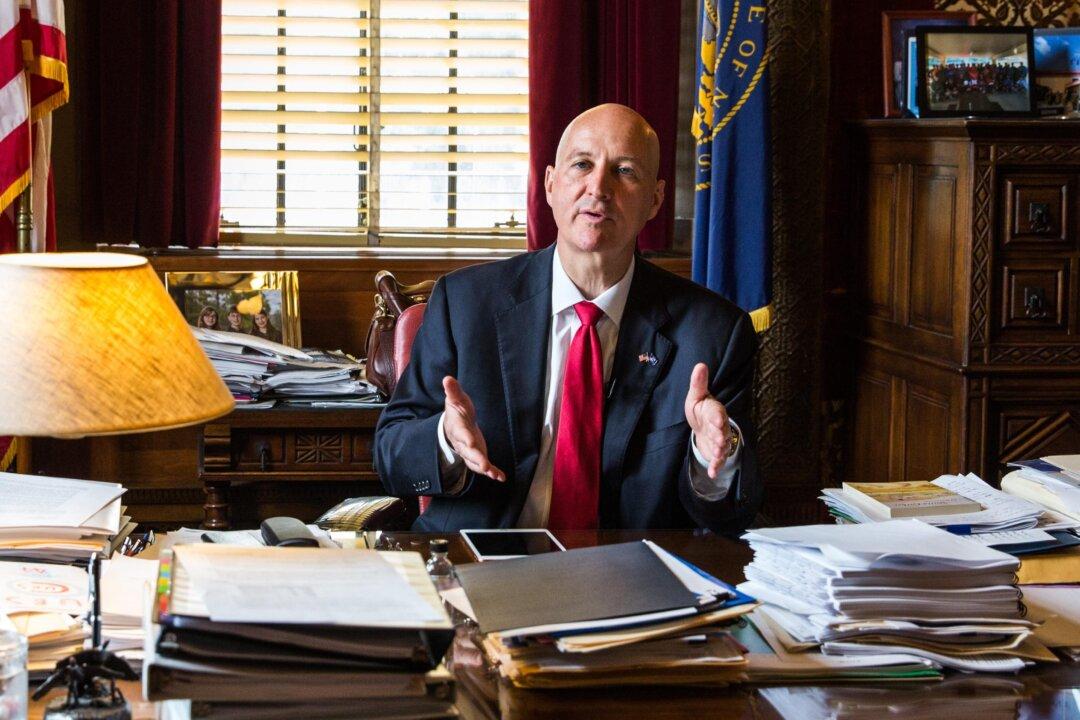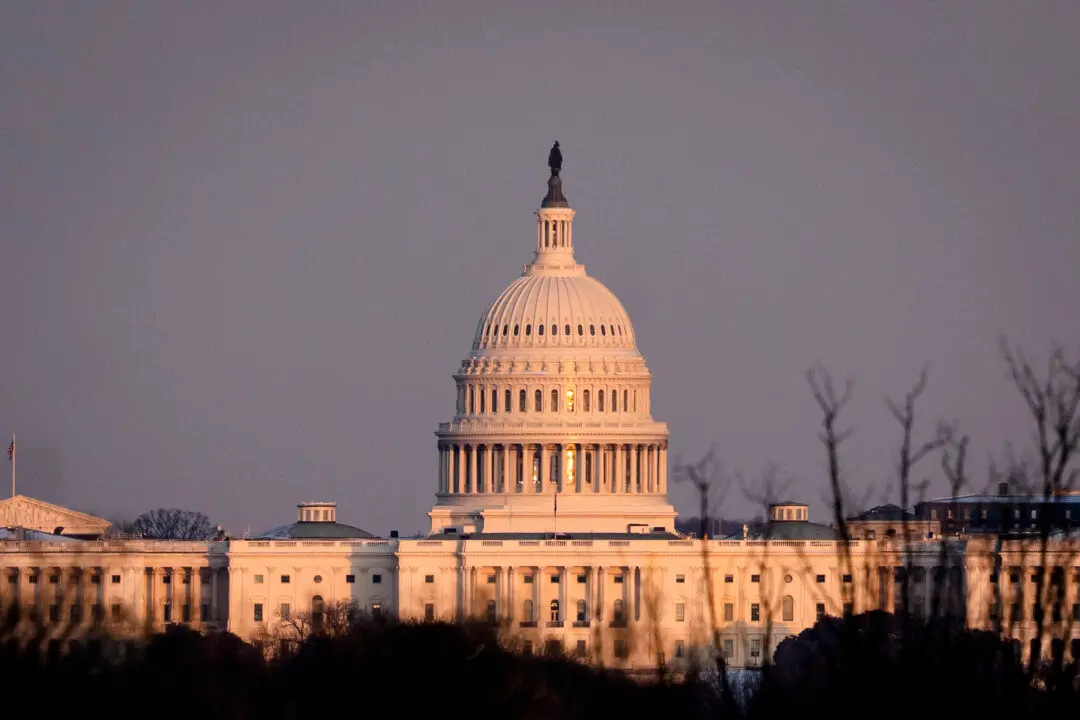Sen. Lindsey Graham (R-S.C.) is pushing for Nebraska Gov. Pete Ricketts to fill the vacant seat left by Sen. Ben Sasse (R-Neb.), who recently announced his retirement.
Sasse confirmed on Oct. 6 that he will retire early from the Senate and will likely take a position as president of the University of Florida.





